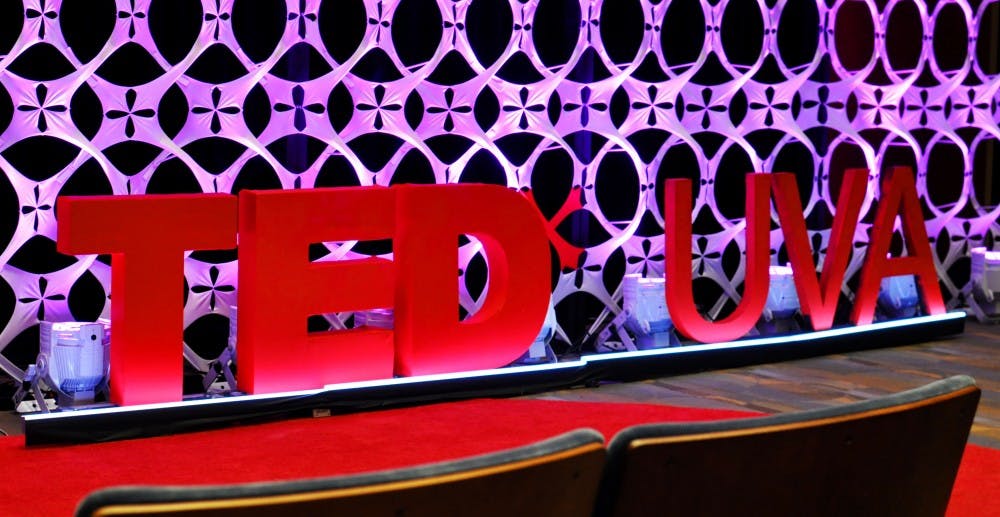"Ideas worth spreading" were at the TEDxCharlottesville’s Open Mic Night, where 24 Charlottesville residents gave short presentations on big ideas to a packed Jefferson Theatre Oct. 13.
Each competitor hoped to earn a spot as a speaker at the official TEDxCharlottesville event, to be held Nov. 14 at the Paramount.
TED talks — short presentations on Technology, Entertainment and Design, though subject matter has been increasingly varied in recent years — were created to inspire and teach audiences about specific topics. Speakers can share past experiences (of both failure and success), their creative talent, a cutting-edge idea for the future — or any idea they believe is “worth spreading.”
Talks are meant to spark passion and stimulate conversation among both friends and strangers, connecting people to build a culture of innovation.
The TEDx program consists of independently-organized events which allow people to connect with the local citizens in their community. Event organizers, volunteers and participating speakers all work without pay to create TEDxCharlottesville, freely donating time and effort in the name of uniting the community.
The theme of this year’s event is “RefleXions.” It is clear each speaker took this to heart when crafting his or her speech. Each of the 24 presentations offered a strong reflection.
Some speeches were deeply personal, touching even. Nica Waters spoke about her journey in weight loss and the importance of getting back up after falling down. Jimmy Elliott shared his personal battle with suicide and how it led him to create a successful group which focuses on suicide prevention and support for people with depression.
Other talks were focused on science and technology. Dr. John C. Herr presented recent advances in medicine to combat cancer, describing new technology which will allow doctors to detect a specific protein found in cancer cells at the egg stage, allowing for earlier and more accurate treatment of tumor cells.
Joni Lane, meanwhile, shared the latest advancements in housing materials. Lane advocated for the use of “hempcrete,” a natural and eco-friendly alternative to concrete. Susan Skalak focused on the scientists of the future, speaking about the need for successful science and engineering programs in Charlottesville elementary schools and a greater focus on exploring these fields at a young age.
The most successful talks were the ones which met TED talks’ explicit goals: pause, question and discuss. Susan Dallas tackled the delicate topic of how to respond to panhandlers. She gave an extensive list of the various resources that Charlottesville has to offer, explaining that the most effective way to help people in need is direct them to long-term help. Janet Driscoll Miller spoke about the cultural trend of belittling ourselves instead of embracing success.
But the most successful talk — and the winner of the open mic — was by Jim Harshaw, a University alumnus and local father. His presentation, “Why I Teach My Children to Fail,” reflected on his own experience failing as a University wrestler and explored why modern education never allows children to fail. Everyone is a winner until they enter the “real world,” he said, where they will fail all the time. He did not stop there, though.
“Just teaching our children to fail and about failure is not enough,” Harshaw said. “We also have to give them the skills to turn that failure into fearlessness, collapse into courage.”







